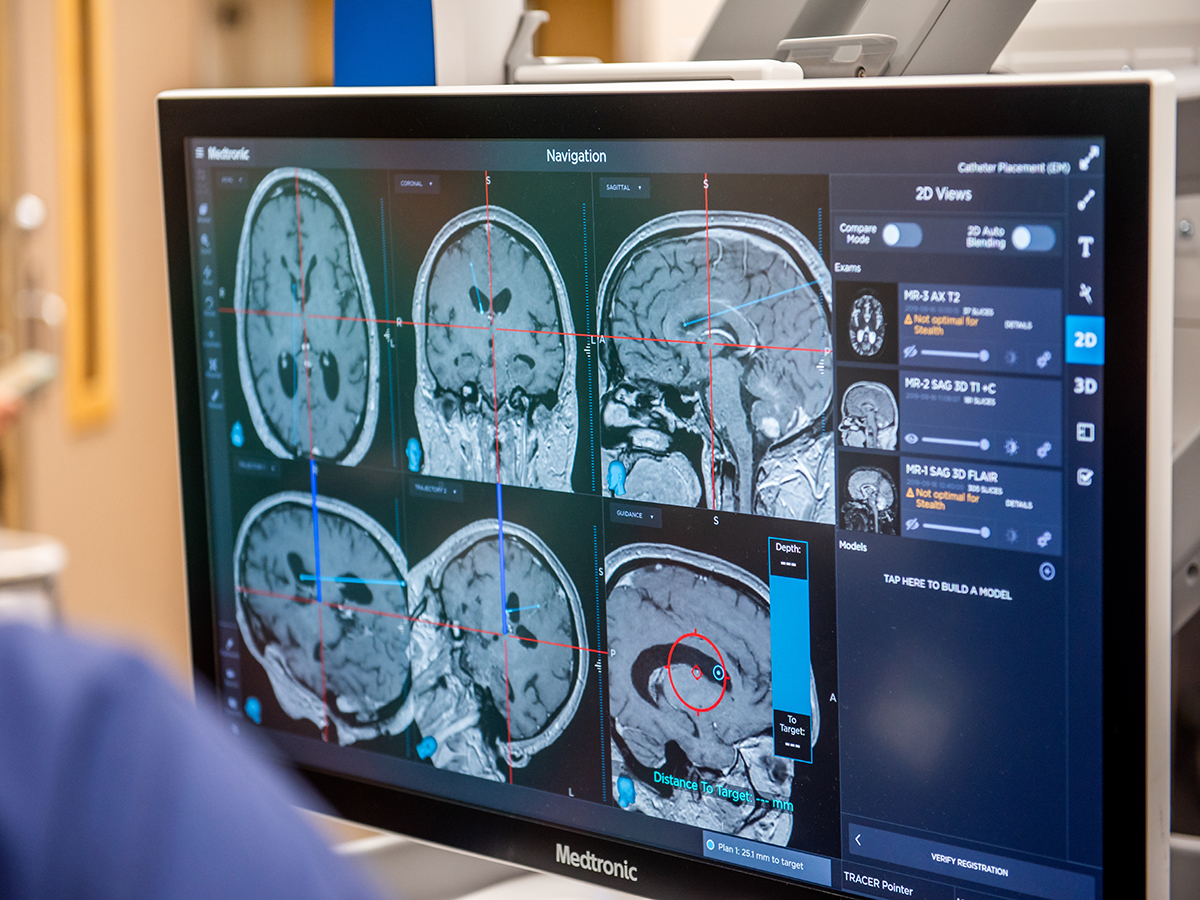 Deep brain stimulation is a surgical brain therapy used to treat symptoms of movement disorders such as dystonia, Parkinson’s disease and epilepsy. Performing over 100 DBS procedures annually, the University of Alabama at Birmingham has one of the largest DBS centers in the nation.
Deep brain stimulation is a surgical brain therapy used to treat symptoms of movement disorders such as dystonia, Parkinson’s disease and epilepsy. Performing over 100 DBS procedures annually, the University of Alabama at Birmingham has one of the largest DBS centers in the nation.
Harrison Walker, M.D., neurologist at UAB Medicine and professor in the Department of Neurology at the UAB Marnix E. Heersink School of Medicine, discusses the significance of DBS and how it improves clinical care.
What is DBS therapy?
DBS is FDA-approved to treat individuals with essential tremor, Parkinson’s disease, dystonia, epilepsy and obsessive-compulsive disorder. DBS is being researched for depression, chronic pain and numerous other indications.
The DBS procedure involves the implantation of electrodes, or leads, into the brain, and the implantation of a control generator into the chest. These two devices work to stimulate the targeted area of the brain.
The stimulation settings are customized to each individual’s needs depending on the condition. This leads to stable symptom control, medication reduction and improvement in essential motor functions.
“While DBS does not slow disease progression, it can reduce symptoms and dramatically improve quality of life,” Walker said.
DBS or medications?
Medications are typically offered first for patients with movement disorders, and adjustments are conducted by trial and error over the course of treatment. When medications become ineffective or poorly tolerated, DBS becomes a viable option for better symptom control.
Long-term medication can cause involuntary movements called dyskinesias. In some patients, medications cause hallucinations and other psychiatric symptoms. DBS can directly block these symptoms, or indirectly help symptoms by allowing the reduction of oral medications.
“DBS is a first-line, gold standard treatment for Parkinson’s disease patients with disabling tremor or dyskinesias that shouldn’t be considered a last resort,” Walker said. “For the right candidate, earlier consideration of DBS can lead to better long-term outcomes.”
DBS at UAB
DBS is a long-term therapy, meaning it requires active management. The procedure builds upon medications and clinical care, but follow-ups and correct programming must be consistent.
“There is a brief healing period before the device is activated, and once stimulation begins, we make gradual adjustments over several visits to fine-tune the settings,” Walker said.
UAB Medicine offers a DBS program with a team of experts across neurology, neurosurgery, neuropsychology, rehabilitation and research. Each DBS patient regularly meets with the care team to ensure care is tailored to meet their needs.
DBS at UAB is expanding in its clinical and research programs to allow access to emerging therapies. The patient-centered program combines science with compassionate care.
“DBS can be life-changing, and our goal is to make this therapy accessible, effective and safe for every patient who may benefit from it,” Walker said.